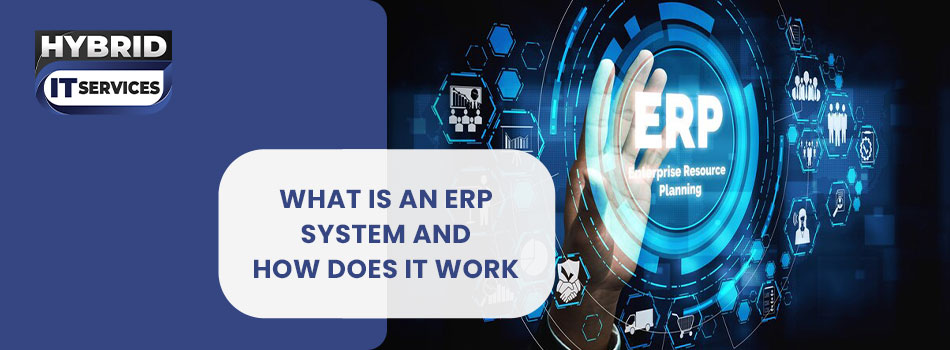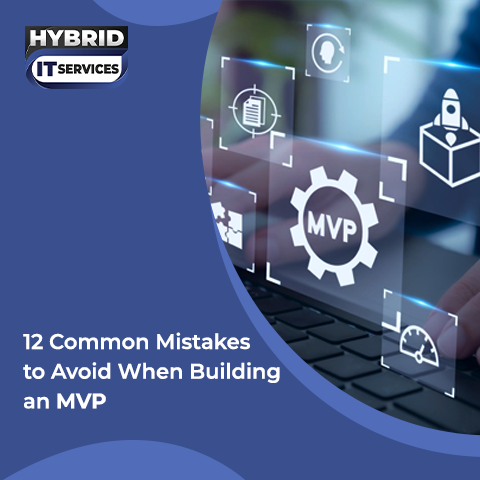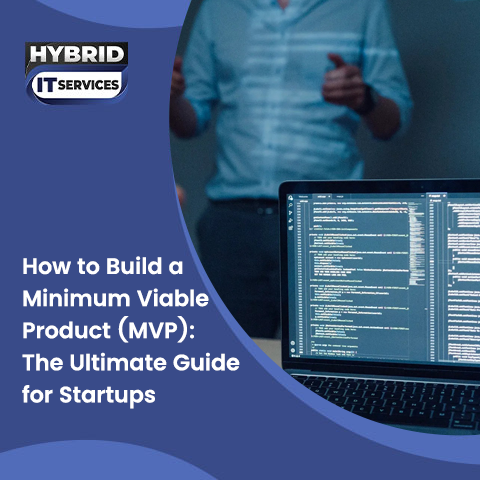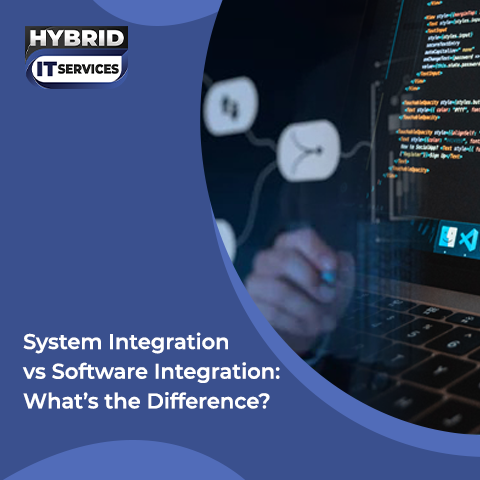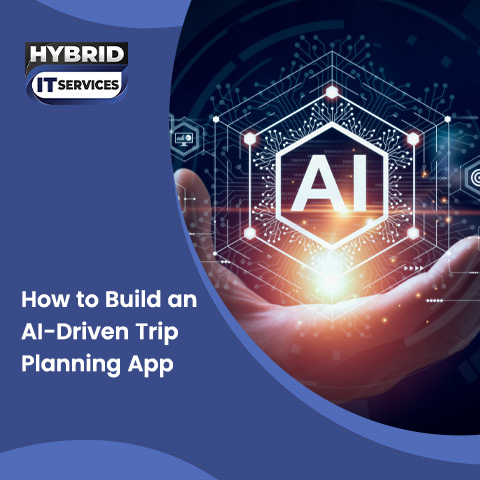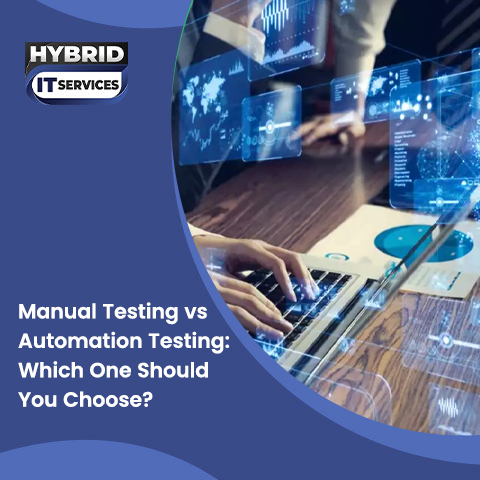IT organizations need smart solutions that bring clarity, streamline operations, and enable growth. One of the most powerful tools for achieving this is an ERP system integration. Whether you're running a small business or managing a growing enterprise, understanding ERP is crucial for digital success.
At Hybrid IT Services, we’ll explore ERP system meaning, how ERP works and how your business can benefit from it.
What is ERP System Features?
ERP System Integration stands for Enterprise Resource Planning. It refers to a type of software that helps businesses manage and integrate their core operations into a single, centralized system. We recommend you also read: ERP Software Development: The Ultimate Guide
Instead of relying on separate tools for accounting, human resources, supply chain, and customer relationship management, ERP brings everything together. The goal? To offer one version of the truth and allow every department to work with up-to-date, accurate data.
How Does an ERP System Work?
An ERP system works through modular integration. Each business function, such as finance, HR, inventory, and procurement, is managed through individual modules. These modules are connected through a central database, which allows real-time data sharing and collaboration across departments.
Here’s how ERP software development typically works:
- Central Database: All modules pull and push data from the same source.
- Real-Time Updates: Any change made in one module reflects across the system.
- Automation: Routine tasks like payroll, invoicing, and inventory updates are automated.
- Analytics: Built-in reporting tools provide insights for better decision-making.
For example, when a product is sold:
- The inventory module updates stock levels.
- The finance module records the transaction.
- The CRM module tracks the customer purchase history.
- The supply chain module may even trigger a reorder if stock is low.
Key Features and Modules of ERP Systems
One of the strengths of an ERP system feature is its flexibility. Companies can choose the modules that best suit their needs. Here are some of the most commonly used ones. You May Also Read: Top Essential Oracle ERP Modules You Need
Finance & Accounting
Manage budgets, track expenses, handle payroll, generate reports, and ensure compliance.
Human Resources (HR)
Oversee employee records, benefits, recruitment, and performance management.
Inventory Management
Monitor stock levels, manage warehouses, and track product movement in real time.
Supply Chain Management
Coordinate purchasing, logistics, and vendor relationships to ensure timely production and delivery.
Customer Relationship Management (CRM)
Track customer interactions, manage leads, and improve the overall customer experience.
Project Management
Plan and track project milestones, resource allocation, and timelines efficiently.
Types of ERP Deployment
Choosing the right ERP software deployment method depends on your business size, infrastructure, and needs. The three most common types include:
On-Premise ERP
- Installed locally on company-owned servers.
- Offers complete control but requires significant IT resources.
Cloud-Based ERP
- Hosted on a vendor’s cloud servers and accessed via the internet.
- Cost-effective, easy to update, and accessible from anywhere.
Hybrid ERP
- A mix of cloud and on-premise.
- Offers flexibility for businesses with specific data or operational needs.
At Hybrid IT Service, we help you assess your infrastructure and choose the deployment model that’s best suited to your goals.
Benefits of Using an ERP System
Implementing an ERP system provides a wide range of ERP software benefits. Explore More: Benefits of Custom ERP Software for Businesses | Enhanced Productivity & Efficiency
- Improved Efficiency: Automate repetitive tasks and reduce manual errors.
- Real-Time Visibility: Get instant access to financial and operational data.
- Better Collaboration: Break down silos and improve interdepartmental communication.
- Scalability: Easily adapt the system as your business grows.
- Regulatory Compliance: Meet industry-specific standards and legal requirements.
ERP Integration with Other Software
Modern ERP systems are built to integrate with other tools you already use. Whether it’s your existing CRM, payroll software, or marketing automation platform ERP can pull them all together into one seamless workflow.
There are two ways to tailor ERP to your business:
Configuration: Adjust system settings to align with your existing processes.
Customization: Modify or add new features for unique business needs.
Hybrid IT Service specialises in both. We ensure your ERP solution feels like a natural extension of your daily operations.
Who Should Use ERP?
Almost any business can benefit from ERP regardless of size or industry. Consolidate scattered tools and get organised. Optimise operations and prepare for scale. Manage complex workflows across multiple locations.
Industries That Commonly Use ERP:
- Manufacturing
- Retail & eCommerce
- Healthcare
- Construction
- Education
- Logistics & Supply Chain
- Hospitality
Even non-profits and public sector organisations use ERP to manage operations and allocate resources efficiently.
The ERP Implementation Process
Implementing an ERP system isn’t just plug-and-play it requires careful planning and professional support. Here’s how we at Hybrid IT Service handle it. You May Also Read: How Do ERP Systems Streamline Business Processes
- Business Assessment – Understand your current systems and pain points.
- ERP Selection – Help choose the right ERP software and modules.
- Customization & Configuration – Tailor the system to your specific workflows.
- Data Migration – Safely transfer your existing data into the new system.
- Training – Ensure your team is confident and ready to use the system.
- Ongoing Support – Provide updates, troubleshooting, and continuous optimization.
Conclusion
Investing in an ERP system is more than just buying software. It's a strategic move that can revolutionise your operations. From real-time visibility to better collaboration and faster decision-making, ERP gives you the edge your business needs to thrive.
At Hybrid IT Service, we’re experts in ERP implementation, customisation, and support. Whether you’re starting from scratch or upgrading your current system, consult us now, we’ll ensure your ERP journey is smooth, secure, and aligned with your business goals.

